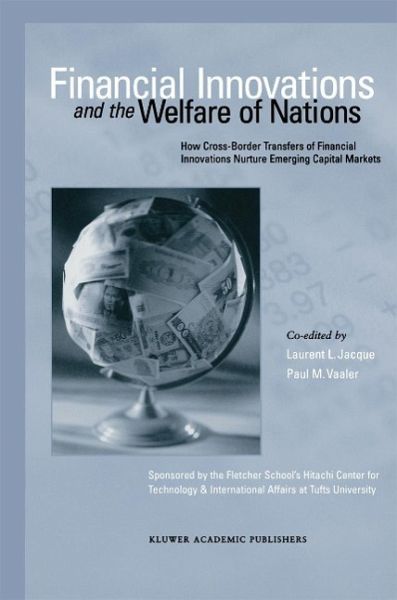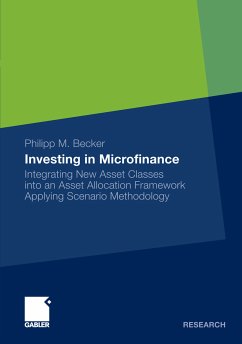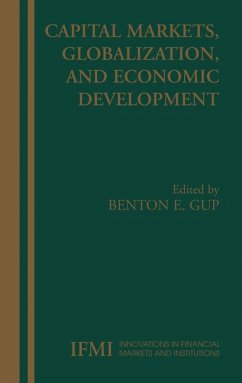
Financial Innovations and the Welfare of Nations (eBook, PDF)
How Cross-Border Transfers of Financial Innovations Nurture Emerging Capital Markets
Redaktion: Jacque, Laurent L.; Vaaler, Paul M.
Versandkostenfrei!
Sofort per Download lieferbar
72,95 €
inkl. MwSt.
Weitere Ausgaben:

PAYBACK Punkte
36 °P sammeln!
The central question addressed in Financial Innovations and the Welfare of Nations is how the transfer of financial innovations from developed to developing economies can nurture the dynamics of emerging capital markets. National capital markets can be positioned along a continuum ranging from embryonic to mature and emerged markets according to a decreasing "national cost of capital" criterion. In the introductory chapter Laurent Jacque argues that newly emerging countries are handicapped by a high cost of capital due to "incomplete" and inefficient financial markets. As capital markets gradu...
The central question addressed in Financial Innovations and the Welfare of Nations is how the transfer of financial innovations from developed to developing economies can nurture the dynamics of emerging capital markets. National capital markets can be positioned along a continuum ranging from embryonic to mature and emerged markets according to a decreasing "national cost of capital" criterion. In the introductory chapter Laurent Jacque argues that newly emerging countries are handicapped by a high cost of capital due to "incomplete" and inefficient financial markets. As capital markets graduate to higher level of "emergedness", their national firms avail themselves of a lower cost of capital that makes them more competitive in the global economy and spurs economic growth. Skillful transfer of financial innovations to emerging markets often encourages the deregulation of the country's financial services sector. This results into new conduits for a more efficient capital allocation process such as commercial paper, securitized consumer finance and other disintermediated modes of financing which out-compete traditional financial intermediaries (mostly commercial banks), reduce households' cost of living and conjointly fuel the dynamics of emerging markets. Our response to the central question of how the transfer of financial innovations can enhance the Wealth of Nations is to show that it reduces the cost of capital while not unduly increasing systemic risk. Part I examines the relationship between financial innovations and systemic risk of the international financial system.
Dieser Download kann aus rechtlichen Gründen nur mit Rechnungsadresse in A, B, BG, CY, CZ, D, DK, EW, E, FIN, F, GR, HR, H, IRL, I, LT, L, LR, M, NL, PL, P, R, S, SLO, SK ausgeliefert werden.












